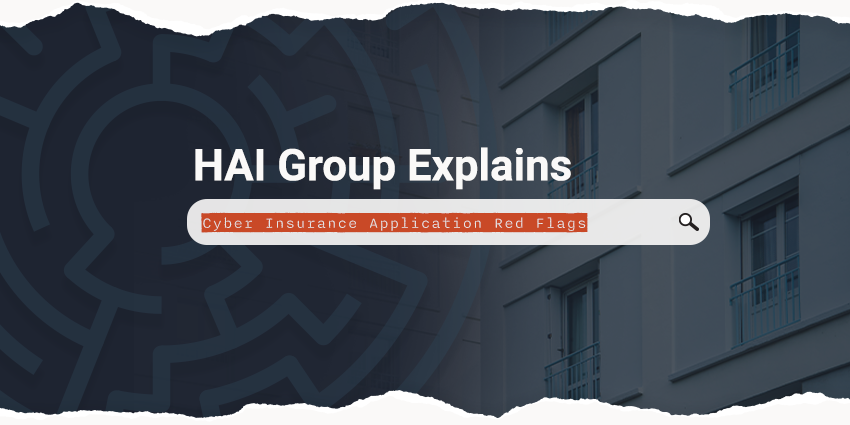As housing agencies increasingly rely on digital systems and data management, the importance of cyber insurance cannot be overstated.
For instance, ransomware activity skyrocketed in 2023, reaching unprecedented levels, while business email compromise (BEC) and funds transfer fraud (FTF) continue to make up the bulk of cyber claims. The global average cost of a data breach in 2023 was $4.45 million, reflecting a 2.3% increase over 2022 and a 15.3% rise since 2020.
While HAI Group does not directly provide cyber insurance, our partnerships with specialized carriers empower us to assist policyholders in securing robust coverage. Here are vital tips for housing agencies to optimize their cyber insurance renewal process and ensure comprehensive protection against cyber threats.
1. Conduct a comprehensive risk assessment:
Begin your renewal process with a thorough risk assessment. Identify potential vulnerabilities in your network security, data protection measures, employee training programs, and incident response protocols. Understanding your risks is crucial for tailoring your coverage to address specific threats effectively.
Not sure where to get started? HAI Group Online Training's Cyber Incident Preparedness and Management Planning course—free to HAI Group policyholders—offers best practices on cyber risk mitigation and responses. This training can help you determine if your organization is focusing on the right areas or potentially overlooking certain risks. By leveraging these insights, you can ensure a comprehensive and effective risk assessment, setting a solid foundation for your cyber insurance renewal.
2. Review and update coverage needs:
Cyber threats evolve rapidly, underscoring the importance of annually reviewing and updating your coverage needs. Consider factors such as the data types you handle, regulatory compliance requirements, and emerging cyber threats relevant to the housing industry. Collaborate with your insurance professional to accurately align your policy with your current risk profile.
For additional insights on cyber insurance coverage, read our blog from the HAI Group Explains series. The blog delves into the essential role cybersecurity coverage plays in safeguarding housing agencies' operations, residents, and reputation. This resource provides valuable information to help you understand and address your specific coverage needs effectively.
3. Understand policy terms and exclusions:
Review and understand your cyber insurance policy terms, including coverage limits, deductibles, and exclusions. Clarify what events are covered, such as data breaches, cyberattacks, ransomware incidents, and business interruption due to cyber events. Be aware of any exclusions that may limit coverage for specific incidents.
4. Implement proactive risk mitigation measures:
Insurers often reward proactive risk management efforts. Implement robust cybersecurity measures such as encryption, multi-factor authentication, regular data backups, and ongoing employee training programs. Documenting these measures can potentially lead to improved coverage terms during renewal negotiations.
Check out our blog for an overview of five key security measures that cyber insurance carriers prefer to see implemented before issuing a policy. This guide will help you understand what insurers look for and how to strengthen your cybersecurity posture effectively.
5. Consider additional coverage endorsements:
Evaluate your risk profile to determine if additional endorsements or riders are necessary. An endorsement is an amendment to an existing insurance contract that typically adds, excludes, or modifies coverage.
Examples include adding a coverage endorsement for social engineering fraud, cyber extortion, system damage, and third-party liability. Tailoring your policy with relevant endorsements enhances your protection against evolving cyber threats.
For additional insights on endorsements, read our blog from the HAI Group Explains series
6. Maintain strong claims history and loss prevention efforts:
Insurers consider your claims history and loss prevention efforts during renewal. Maintain a proactive approach to cybersecurity by creating a cyber incident response plan based on the National Institute of Standards and Technology's four-phase approach. Continually document incident response procedures, and demonstrate ongoing improvement in risk management practices. A positive claims history and robust risk mitigation efforts can lead to favorable renewal terms.
Bottom Line: Renewing your cyber insurance policy is a proactive safeguard for your housing agency's digital assets and operations. By following the tips outlined in this article, you can optimize coverage and help manage costs effectively. HAI Group's Account Services team remains committed to supporting our policyholders in navigating the complexities of cyber insurance and ensuring a secure digital future for their agencies.
For free housing-centric cybersecurity resources, visit the HAI Group Cybersecurity Center.
This article is for general information only. HAI Group makes no representation or warranty about the accuracy or applicability of this information for any particular use or circumstance. Your use of this information is at your own discretion and risk. HAI Group and any author or contributor identified herein assume no responsibility for your use of this information. You should consult with your attorney or subject matter advisor before adopting any risk management strategy or policy.






